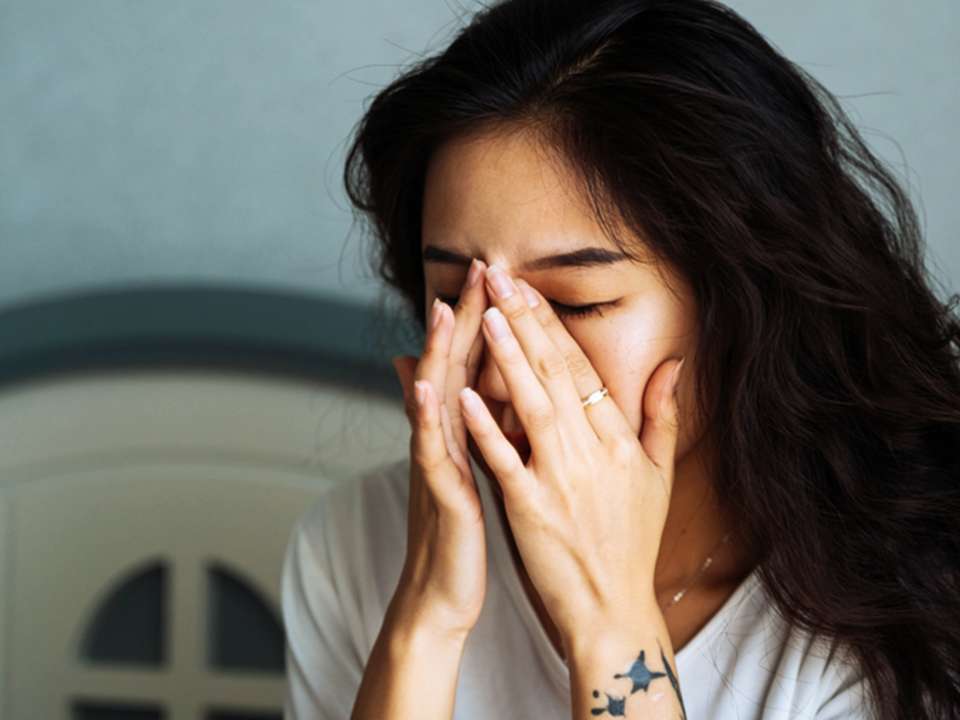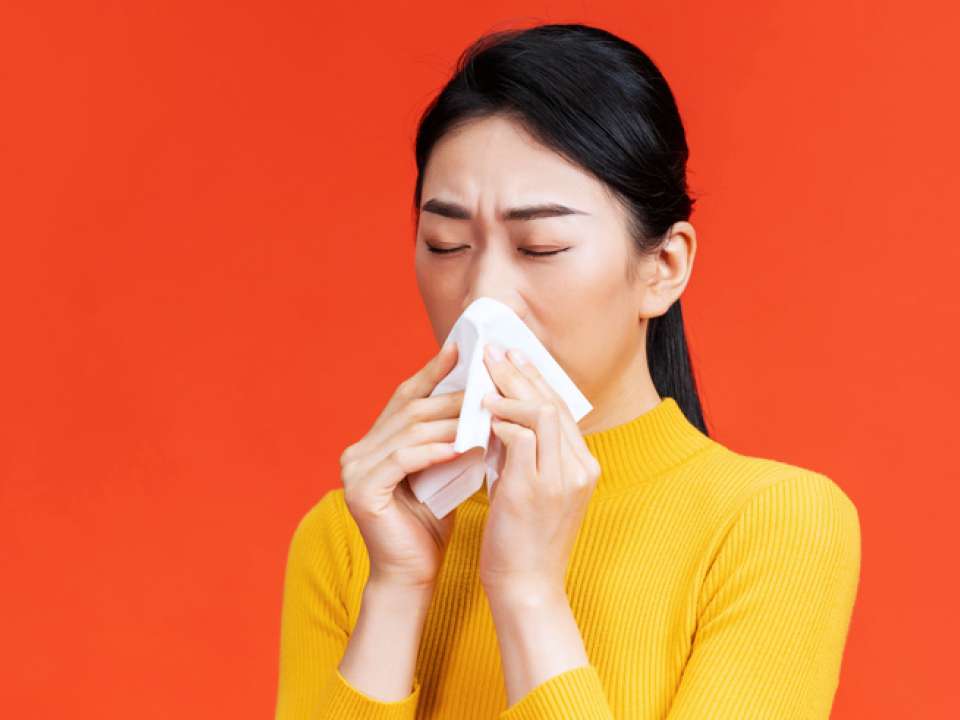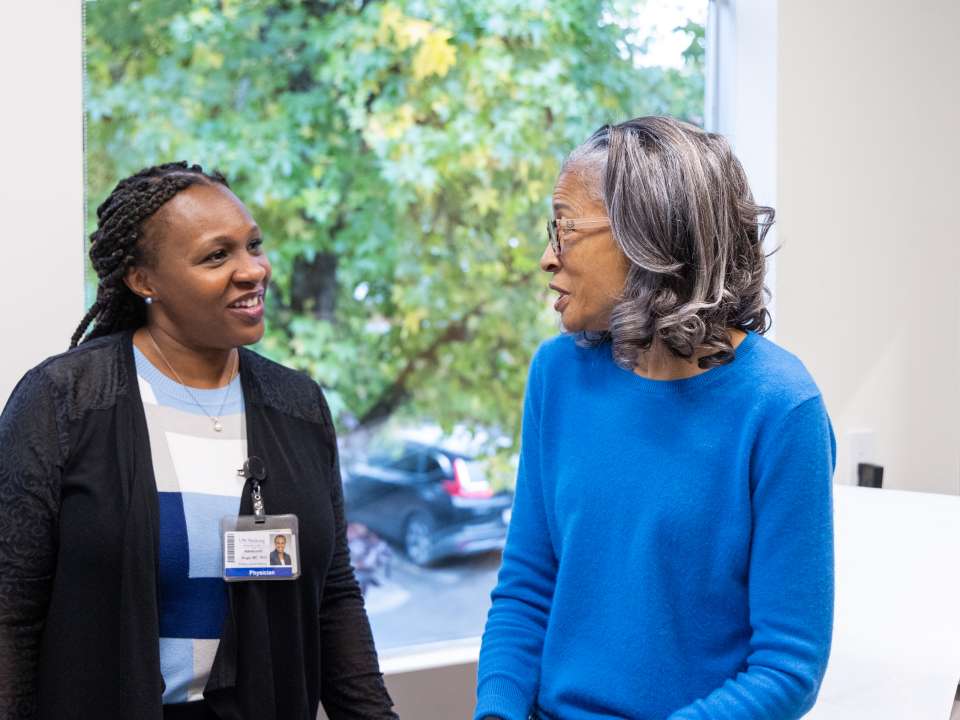
Many people want to feel like the hottest in the room — but random hot flashes were probably not what they meant.
Unfortunately, more than 80% of women report experiencing hot flashes at some point during or after their reproductive lifetime. So yes, if you’ve had ovaries at some point in your life, you’ll likely experience them, too.
The good news is, while there are several different causes of hot flashes, the most common cause is menopause, meaning your time creating handheld fans out of restaurant menus could be limited to just the years around the change.
However, if you are currently experiencing hot flashes throughout your day because of menopause, there is an explanation for your body’s sudden need to overheat — and it’s completely normal.
What does a hot flash feel like?
“Hot flashes, or night sweats when they happen at night, are sudden feelings of warmth that often appear to occur without reason,” says Dr. Susan Reed, vice chair for research at the University of Washington School of Medicine's Department of Obstetrics and Gynecology.
If you’ve had hot flashes before, it’s likely you felt them in your torso, neck and face. You may also have anxiety, palpitations, and flushing or redness in the face, neck and chest.
“A hot flash usually lasts about 2 to 10 minutes,” says Reed. “It may be followed by a feeling of chilliness. The intensity varies from a feeling of mild warmth to intense heat.”
All of that is not great, especially given the unpredictability of a hot flash and that they can continue recurring for years after they begin.
What happens in the body during a hot flash?
During a hot flash, it’s common to feel a sudden rush of warmth in the upper body. You could sweat, and your skin can even turn red, too, as if you’re blushing.
Hot flashes are nothing to be embarrassed about, though. There’s a perfectly normal reason why this is happening.
When your body’s estrogen levels decrease, it’s thought that this change makes your body a little more sensitive to temperature. Reed explains that before a hot flash, your hypothalamus, aka the part of your brain that helps regulate your body temperature, will notice a small increase in your body temperature. Then, it kind of... overreacts.
Despite noticing small increases in your temperature, your hypothalamus thinks you’re too warm. It sends signals to your body to help you cool down, which causes the blood vessels to dilate near the skin to help your body give off heat. Reed says that sweating is another cooling mechanism the body uses.
What causes hot flashes?
While the changes in hormone levels due to menopause are the most common cause of hot flashes, there are other reasons that might trigger your body to turn on the heat.
People with endometriosis or fibroids can get hot flashes when they’re given hormonal medications that block the ovaries’ production of natural hormones. Surgery that removes the ovaries can also cause hot flashes. Similarly, those undergoing gender-affirming hormone therapy may also have hot flashes.
It’s also possible for men or those without ovaries to get hot flashes — medications that block testosterone and estrogen to treat prostate cancer can cause hot flashes.
And while many women report having hot flashes, Reed highlights that some people are more likely to get them than others. Certain factors like smoking or a high body mass index have been associated with hot flashes.
A recent study that looked at the time and duration of someone’s symptoms proved that race also plays a role, with Asian women reporting the least instances of hot flashes during menopause and Black women reporting having menopause-related hot flashes more than women of other races.
Hot flashes are uncommon under the age of 40, which is why most people enjoy a hot flash-free childhood.
Understanding why you may get hot flashes can help you understand your body more, but it doesn’t stop the hot flashes from happening. Luckily, there are some treatments for those who want to cool down their hot flashes and continue a non-sweaty life.
What is the best way to cope with hot flashes?
If you want to tame your hot flashes, quick lifestyle changes like dressing in layers and carrying a portable fan are some ways to prevent or manage consistent hot flashes.
Other lifestyle changes that can help include diet changes like cutting alcohol or caffeine, quitting smoking and maintaining a healthy weight.
If you still need help, there are some medications your doctor can prescribe to help fight your hot flashes. These could include some antidepressants, which are nonhormonal, or other hormonal alternatives.
If you’re interested in hormone treatment, Reed suggests finding a menopause-certified practitioner, designated as North American Menopause Society (NAMS) Certified Menopause Practitioner.
While many people have found these treatment methods helpful, it’s important to talk to your doctor first to understand what would work best for you and your body. Because in the end, regardless of your age, you can still be hot — without the hot flashes.

 Healthy ideas for your inbox
Healthy ideas for your inbox





